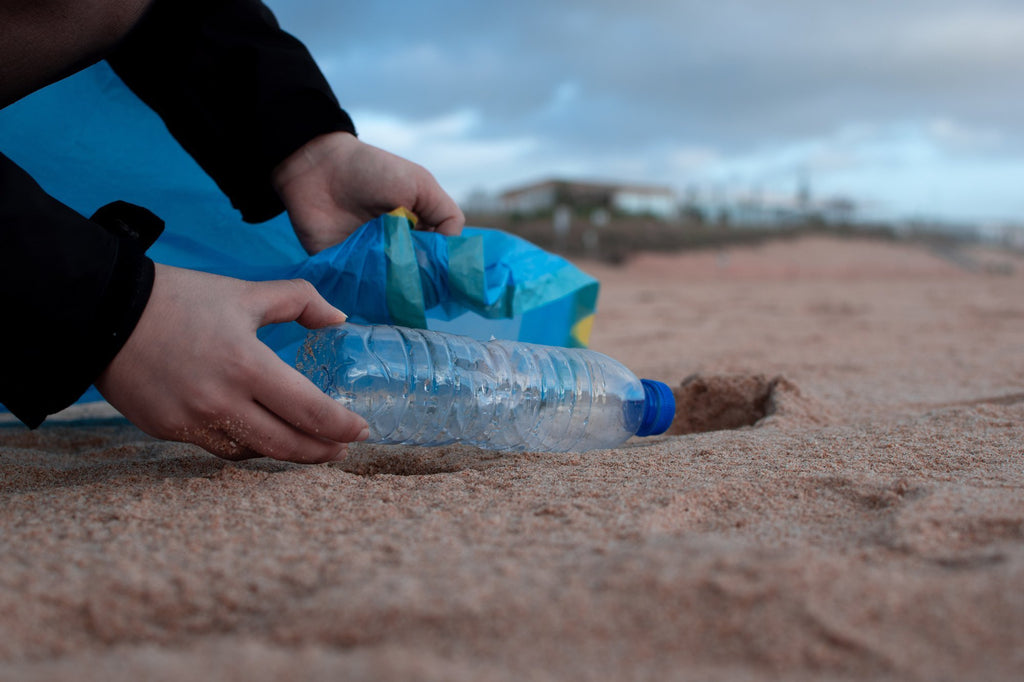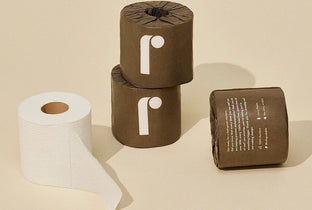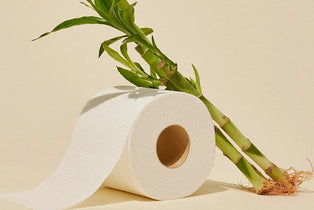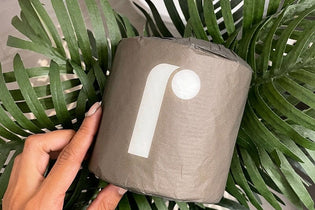
TLDR
We've been hearing "reduce, reuse, recycle" since the 1970s. Admittedly, even though familiar concepts like using reusable shopping bags and going paperless are still effective, the same ideas are getting kind of old.

Luckily, you can find plenty of awesome new ways to reduce, reuse, and recycle that complement the tried-and-true methods while also getting your creative – and sustainable – juices flowing.
Here is your go-to guide for bringing reduce, reuse, recycle into the 21st century.
Get Crafty
Most kids enjoy making fun crafts out of old milk cartons or cereal boxes on Earth Day. But crafts don't just have to be for kids. And you don't have to wait until April 22nd to do them.
In fact, there's no reason we can't all embrace our creative sides every day while we reduce, reuse, and recycle!
Repurpose Old Denim
Whether it be a jacket, a dress, or a pair of jorts – yes, jean shorts – a lot of people wear denim. As a result, denim is a big contributor to the textile waste that makes up 8% of landfills.
Fortunately, the durable material is perfect for repurposing into rugs, aprons, pillow covers, and more!
Eye-catching denim decor will save you money, cut down on waste, and maybe even act as a conversation starter for house guests.
Give New Life to Used Coffee Grounds
Most people wash their coffee grounds down the drain or toss them into the garbage can. They can still be useful, though, after you've brewed yourself a hot cup of wake-up juice.
If you're into DIY projects, turn your coffee grounds into caffeinated soaps or coffee-scented candles!
If you prefer something a bit more practical, you can also use coffee grounds to keep bugs off of your plants and to eliminate odors – like garlic or onion – from your hands.
Whichever you choose, coffee grounds are a fantastic way to reduce, reuse, and recycle.
Reuse Empty Pill Bottles
You probably have at least one empty orange pill bottle lying around the house that you're tempted to recycle.
Although they are recyclable, their small size makes them difficult for recycling centers to process, according to Consumer Reports. An even better alternative is to use them for something new.
Empty pill bottles have proven to be very versatile. As it turns out, they're the perfect size for traveling! You can fill them with cotton swabs, hairpins, or even shampoo and lotion – provided they seal tightly.
Additionally, you can use your pill bottles to organize screws or other small parts, or even to make yourself a small DIY survival kit.
Reduce, Reuse, Recycle in the Garden
A garden – whether at a community plot or in your backyard – is a great addition to any lifestyle that can provide fresh fruits, veggies, and herbs, give you a new hobby, and even improve heart health and hand strength.

Unfortunately, gardening still creates some waste (from water usage to mulch to discarded prunings), but here are a few ways you can reduce, reuse, and recycle in your garden.
Start Composting
Composting is one of the best ways to reduce food waste while simultaneously returning nutrients to the Earth.
In general, try to avoid putting meat and fish products in compost, as they can attract unwanted pests. On the other hand, banana peels, eggshells, tea leaves, and more are all excellent nutrient-boosting additions to your compost pile.
Furthermore, you can collect (cooled) wood ashes from the fireplace and add them to your compost. According to the University of Vermont's Department of Plant and Soil Science, ashes add valuable nutrients to the soil while keeping it from getting too acidic.
Be a "Grasscycler"
A green lawn can serve as the foundation for many fun activities – like a pickup soccer game or a nice afternoon picnic. Unfortunately, with increasing water and fertilizer costs, maintaining your lawn can also be expensive.
Don't worry, though. There are plenty of ways to reduce, reuse, and recycle that benefit your lawn.
Grasscycling is exactly what it sounds like: grass + recycling. To "grasscycle," all you have to do is leave your grass clippings on the lawn when you've finished trimming it, so they can nourish your yard's soil instead of ending up in a landfill.
In addition to grasscycling, leaving grass a little longer, especially in the hot summer months, can help save water. Longer grass means more shade on the soil, which prevents water from evaporating before it's absorbed. As a bonus, it can even help curb weed growth.
How Will You Reduce, Reuse, Recycle?
From denim aprons to caffeinated soap, and from composting to grasscycling, you can find plenty of contemporary ways to reduce, reuse, and recycle.
Although they won't replace already established methods – like cutting back on single-use plastics – these ideas will help you reduce waste at home and in your community. They may even put a smile on your face while you do them.
How do you embrace your creative side while helping the planet? Let us know in the comments!



2 comments
David Freeman on
Candice S on